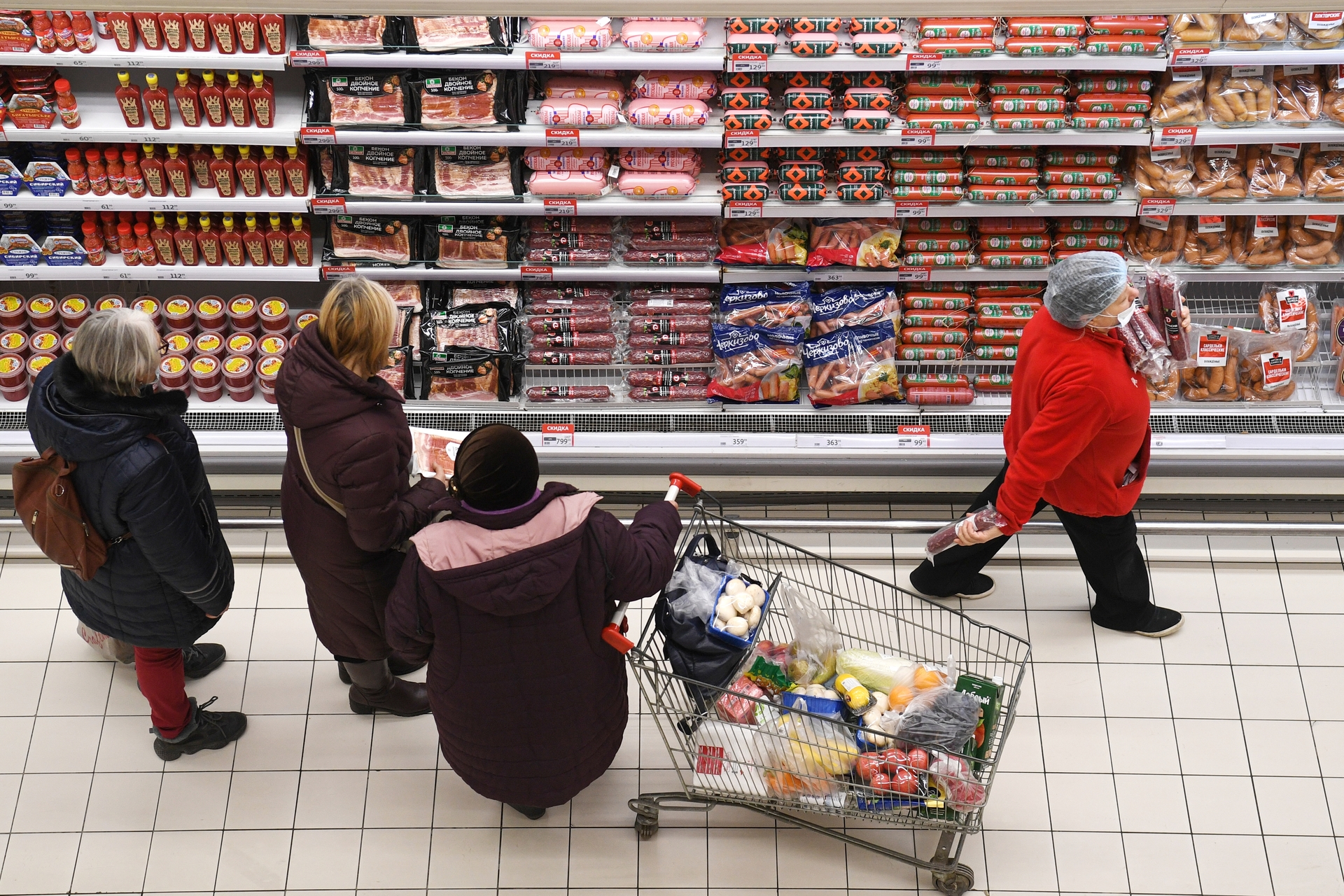The Russian Ministry of Agriculture has prepared new measures to stabilize food prices in Russia.
On Wednesday, November 10, the head of the department, Dmitry Patrushev, reported on the relevant initiatives to the President.
According to him, in order to meet the needs of the domestic market in 2022, it is proposed to establish a tariff quota for sugar imports.
At the same time, the authorities are considering the possibility of zeroing duties on the import of meat into the country.
“The Ministry of Agriculture has proposed to establish a tariff preference for the import of frozen pork in the amount of up to 100 thousand tons, frozen beef - up to 200 thousand tons.
This decision was considered and supported by the subcommittee on customs tariff and non-tariff regulation, ”Patrushev said at a meeting between Vladimir Putin and the government.
In addition, the minister announced plans to establish a quota for the export of grain from the country in the first half of 2022.
Its size will be determined at the end of 2021, the head of the Ministry of Agriculture specified.
Also this year, the government has already introduced a floating duty on grain exports, recalled Dmitry Patrushev.
According to him, at the moment the mechanism allows maintaining domestic prices for products significantly lower than global values.
Nevertheless, in the event of a significant rise in the price of grain in the world, the formula for the floating duty may be revised upward, the minister stressed.
Vladimir Putin positively assessed the initiatives presented and called the set of measures “sound and balanced”.
As the head of state emphasized, it is necessary to organize work on the implementation of all proposals, but at the same time to avoid a decrease in the production of goods and fertilizers necessary for agriculture.
RIA News
© Alexander Kryazhev
The new government measures will have to provide the domestic market with additional food and thereby contain the rise in food prices.
This point of view in an interview with RT was expressed by Georgy Ostapkovich, director of the Center for Market Research at the Institute for Statistical Studies and Economics of Knowledge at the Higher School of Economics.
“These are effective initiatives, and economic history knows examples when the shortage of goods was regulated by similar measures - various duties or export restrictions.
The main thing is that these restrictions are temporary, ”the specialist emphasized.
According to him, against the backdrop of the consequences of the coronavirus pandemic, the problem of rising food prices has now acquired a global character.
Over the past year, world food prices have risen by almost a third, and in October they renewed their ten-year high.
This is evidenced by the latest estimates from the Food and Agriculture Organization of the United Nations (FAO).
The current state of affairs in the world has affected Russia, Ostapkovich said.
Thus, according to the latest estimates of the Federal State Statistics Service and the Ministry of Economic Development, over the past 12 months, prices for food products in the country on average increased by 10.8%.
The biggest increase was observed in the cost of cabbage (by almost 88%), potatoes (by 74%), cucumbers (by 61%) and tomatoes (by 59%).
In addition, prices for carrots (39%) and onions (30%) increased significantly.
One of the reasons for the observed rise in prices for fruit and vegetable products in the country was the relatively modest harvest indicators.
According to Dmitry Patrushev, the observed situation is largely related to weather factors.
“In 2021, we increased the area for the main crops, however, weather factors still led to a certain lag in the pace of harvest and its volume for some types of crops ... For potato and open field vegetable growing, the weather conditions in 2021 were the most unfavorable,” Patrushev stressed ...
At the same time, already in 2022, the authorities are going to increase support for vegetable growing by 5 billion rubles.
Producers will receive money from the state for the expansion and modernization of production, as well as the construction of storage facilities.
Small and medium-sized farms will be helped to ensure direct marketing of products.
In addition, in early November, the government announced plans to introduce temporary restrictions on the export of mineral fertilizers.
As the Prime Minister of the country Mikhail Mishustin noted earlier, the decision will help prevent a deficit in the domestic market and, as a result, avoid further increases in food prices.
According to Aleksey Korenev, an analyst with Finam FG, the actions of the authorities should promptly stabilize the Russian food market.
According to the specialist, by December the growth rate of food prices may reach peak values, but in January they will begin to decline.
“In the long term, it is necessary to combine several measures at once to maintain a stable situation with prices.
It is necessary to introduce quotas for a limited time and at the same time support financially local producers with tax breaks and subsidies, "the analyst emphasized in a conversation with RT.

